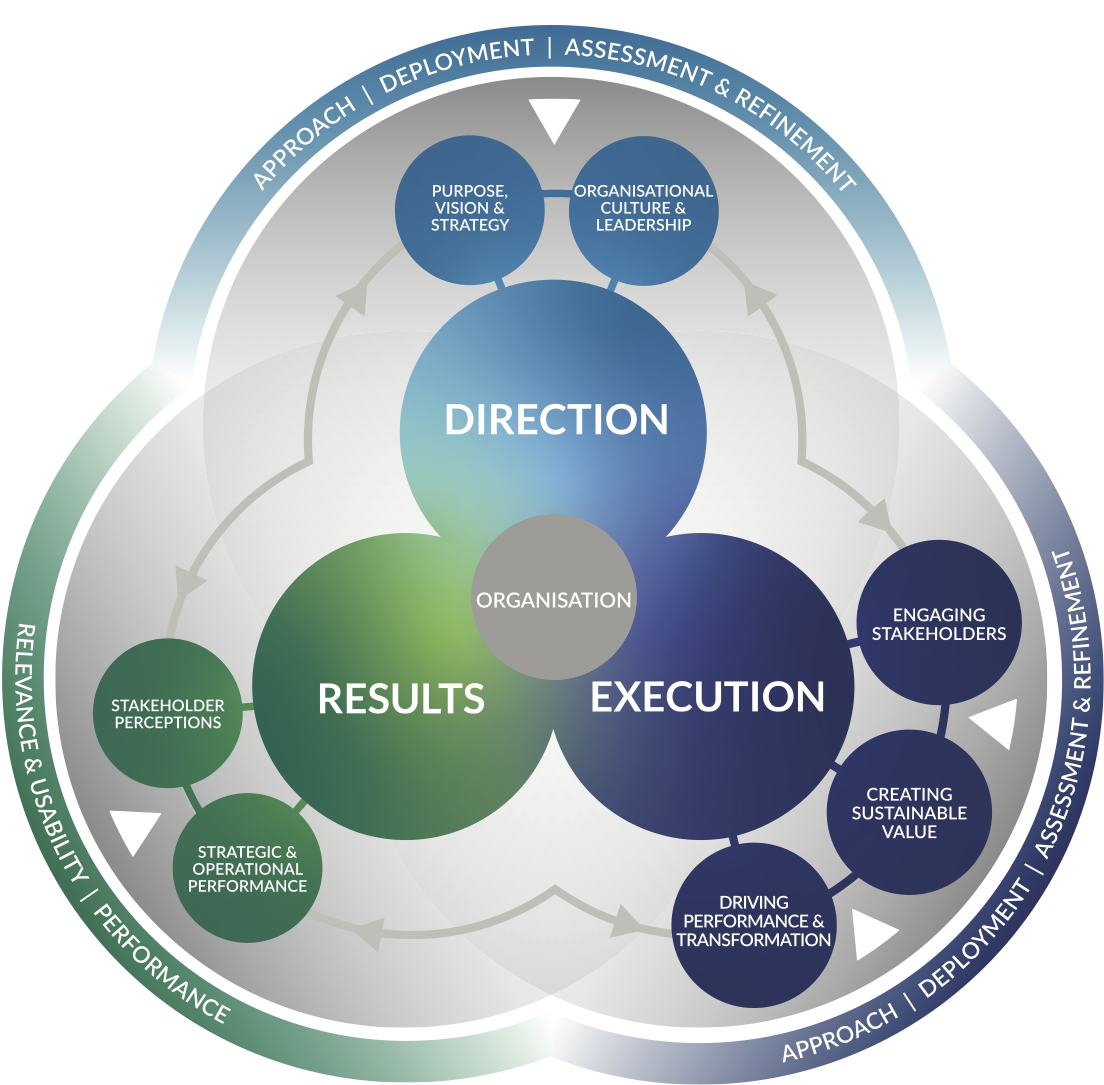EFQM Model 2025
Whilst the specific content and visual identity of the EFQM Model may have changed over time, what has not changed are the underlying principles on which it is based. Regardless of the size of the organisation or whether it is public, private or third sector, these principles are as important today as they have ever been and this latest edition of the EFQM Model is no different in continuing to stress the importance of:
• the primacy of the customer
• the need to take a long term,stakeholder centric view
• understanding the cause and effect linkages between why an organisation does something, how it does it and what it achieves as a consequence of its actions.

The EFQM Model, like its predecessors, acknowledges the existence of a set of European Values, best expressed in:
• The EU Charter of Fundamental Rights
• The European Convention on Human Rights
• The European Union Directive 2000/78/EC
• The European Social Charter.
The Foundation also recognises the role that organisations can play in supporting the goals of the United Nations and these goalshave also helped to shape this latest edition of the EFQM Model:
• The United Nations Global Compact (2000). Ten principles for sustainable and socially responsible business.
• The United Nations 17 Sustainable Development Goals are a call for action by all countries to promote social equity, sound governance and prosperity while protecting the planet.
There is an assumption and expectation that any organisation using the EFQM Model will respect and act upon the essence of the messages contained in the above, regardless of whether it is legally obliged to do so or not.
Using the EFQM Model provides the opportunity to see the whole, to take the holistic perspective and appreciate that an organisation is a complex but, at the same time, an organised system. Just like the world at large, an organisation should not be seen as linear, mechanical and predictable, rather it is far better understood as a complex adaptive system, made up of interdependent humans in adynamic living world. Any organisation using the EFQM Model:
- Recognises that it does not operate in a vacuum. It understands that it is part of a larger, complex ecosystem in which other players, known and unknown, can help or hinder its progress and that it is in its own interest to engage with and maximise the opportunity to learn and grow from others within its ecosystem
- Accepts the opportunity to act as a Leader in its sphere of influence, behaving as an inspiration to others and demonstrating what can be achieved for the benefit of others as well as itself
- Understands that it will face ever- increasing speeds and volumes of change and that it must be prepared to anticipate, address and respond appropriately, embracing the challenge of managing for today, and at the same time, forecasting the future and making sure it is prepared for it.
• “Why” does this organisation exist? What Purpose does it fulfil? Why this particular Strategy? (Direction)
• “How” does it intend to deliver on its Purpose and its Strategy? (Execution)
• “What” has it actually achieved to date? “What” does it intend to achieve tomorrow? (Results).
Central to the rationale of the EFQM Model, the “red thread”, is the connection between the Purpose and Strategy of an organisation and how that is used to help it Create Sustainable Value for its most important Stakeholders and deliver outstanding Results.

